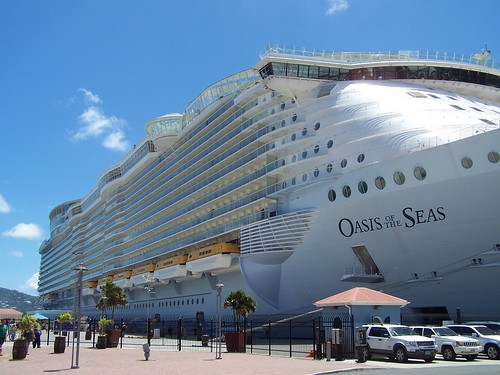Economies of Scale
Image: Some rights reserved by Cory M. Grenier
Starter
What cost advantages are there for big firms? Watch the video clip below.
On board world’s biggest cruise ship Oasis of the Seas
Image: Some rights reserved by Paul Dickerson
Resources
There are five main types of Economies of Scale for you to consider. The resources give a little bit of information about each one.
1) Purchasing Economies
2) Financial Economies
3) Managerial Economies
Study this business structure and consider how it is more efficient than a company which is a sole trader
4) Technical Economies
5) Marketing Economies
General resource for cross-referencing
Demonstrating Your Understanding
Level 3 Activity – Quite tricky – makes you think. Complete the first two tasks at the end of this page, but use the 5 economies of scale above. The scores in brackets are not the same as IGCSE scores, so you can ignore them. As you do so, be sure to explain what each type of economies of scale means Extra Task – include Risk Bearing Economies.
Level 2 Activity – Medium Difficulty – Think of some of the ways in which IKEA uses the five Economies of Scale listed above. even if you can’t give specifics, give examples that you think would apply to IKEA (or another large retail firm). This pdf file referring to IKEA in Bangkok, Thailand, might give you some ideas. As you do so, be sure to explain what each type of economies of scale means. Extra Task – include Risk Bearing Economies.
Level 1 Activity – Accessible and Useful. Extra Task – research and comment on Risk Bearing Economies. Having done this you should be able to answer a question like this ‘Explain what is meant by economies of scale’ (6)
| Print article | This entry was posted by James Penstone on May 24, 2012 at 7:50 pm, and is filed under Economics, IGCSE Economics. Follow any responses to this post through RSS 2.0. You can leave a response or trackback from your own site. |





